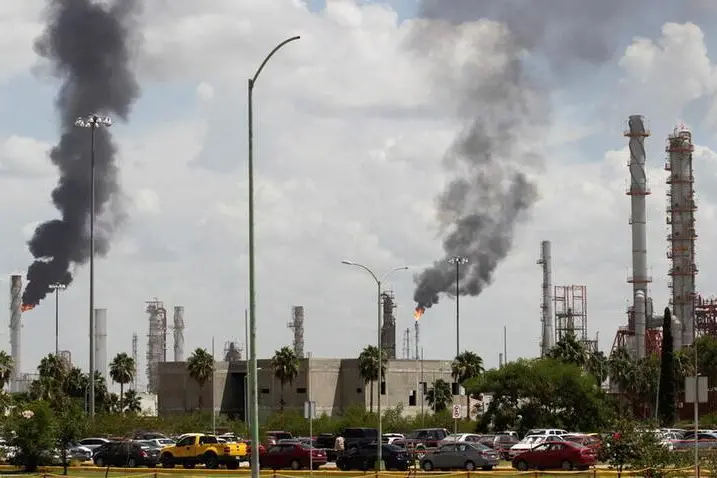PHOTO
TOKYO: Oil prices plunged on Friday, after rising to seven-year highs this week, as an increase in U.S. crude and fuel stockpiles prompted investors to take profits from the rally.
Brent crude futures dropped $2.46, or 2.8%, to $85.92 a barrel by 0136 GMT. The contract earlier fell by as much as 3%, the most since Dec. 20. The global benchmark touched $89.50 a barrel on Thursday, its highest since October 2014.
U.S. West Texas Intermediate (WTI) crude futures slid $2.61, or 3.1%, to $82.94 a barrel. The contract earlier fell as much as 3.2%, also the most since Dec. 20, after rising to its highest since October 2014 on Wednesday.
The recent rally in crude prices appeared to run out of steam on Thursday when Brent and WTI ended the trading session with slim losses. Both benchmarks have gained more than 10% so far this year amid concerns over tight supply.
"Investors made short-term adjustments in their positions after an increase in U.S. inventory and ahead of the weekend," said Hiroyuki Kikukawa, general manager of research at Nissan Securities.
Gasoline inventories in the United States, the world's biggest oil consumer, rose by 5.9 million barrels, to their highest since February 2021, according to the U.S. Energy Information Administration (EIA). Crude stockpiles rose by 515,000 barrels last week, against industry expectations.
The EIA also reported a slight decline in refinery runs, indicating lower demand for crude.
Falling equity markets also impacted crude markets as investors have become increasingly worried about central banks raising interest rates this year to combat inflation, with the Nasdaq dropping 1.3% in the U.S. and the Nikkei 225 index in Japan down 1.7%
"Slumping stock markets amid concerns that the Federal Reserve may aggressively move to raise rates this year also weighed on sentiment", said Chiyoki Chen, chief analyst at Sunward Trading.
Oil supply concerns mounted this week after Yemen's Houthi group attacked the United Arab Emirates, OPEC's third-largest producer, while Russia, the world's second-largest oil producer, has built up a large troop presence near Ukraine's border, stoking fears of invasion.
However, the International Energy Agency (IEA) said on Wednesday that oil supply will soon overtake demand as some producers are set to pump at or above all-time highs, while demand holds up despite the spread of the Omicron coronavirus variant.
(Reporting by Yuka Obayashi; Editing by Christian Schmollinger) ((Yuka.Obayashi@thomsonreuters.com; +813-4520-1265;))





















